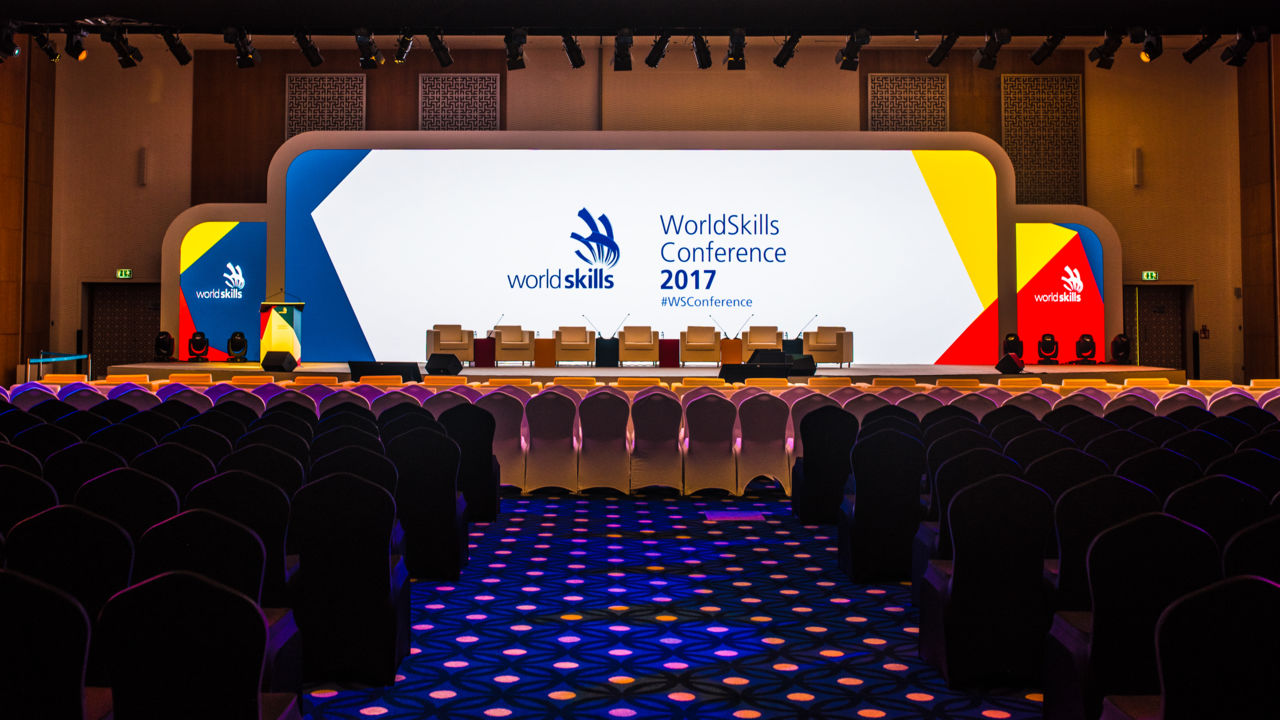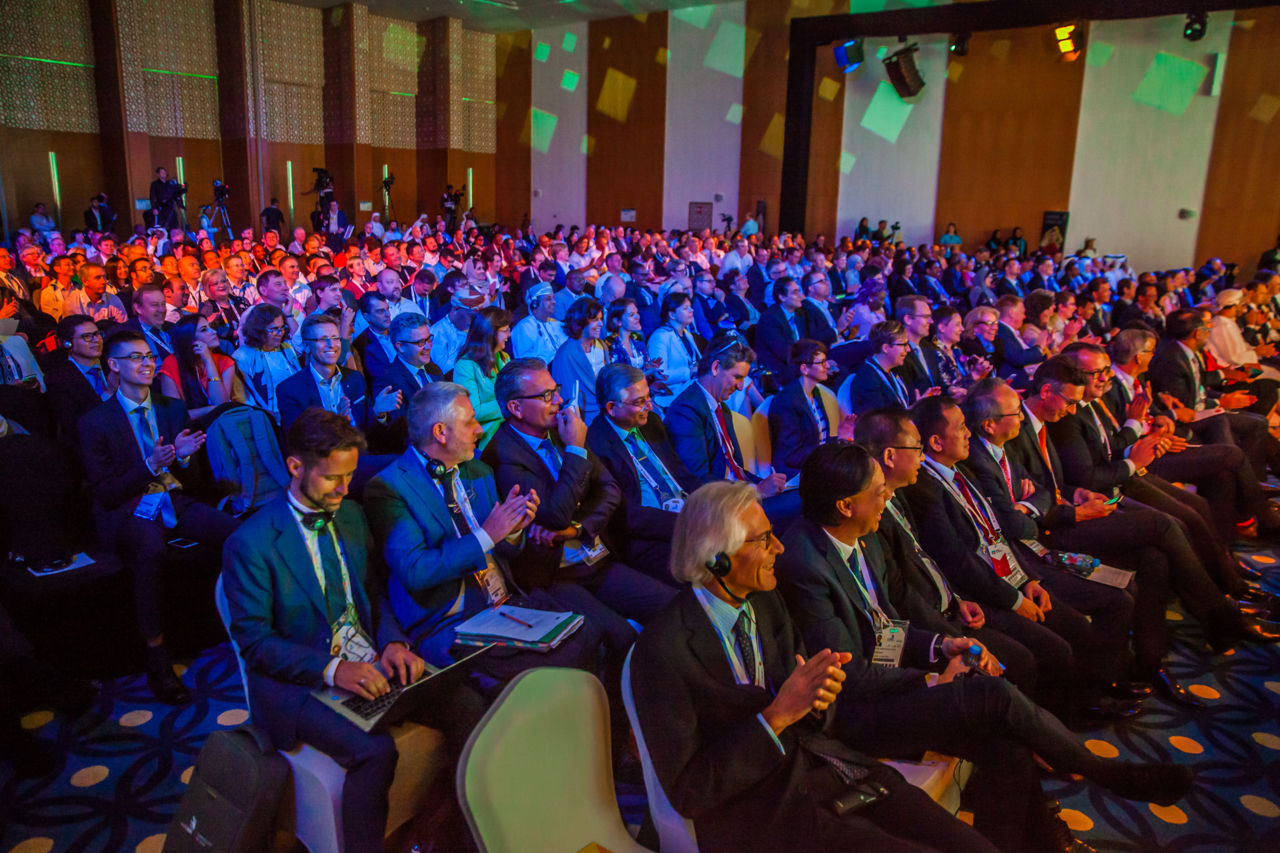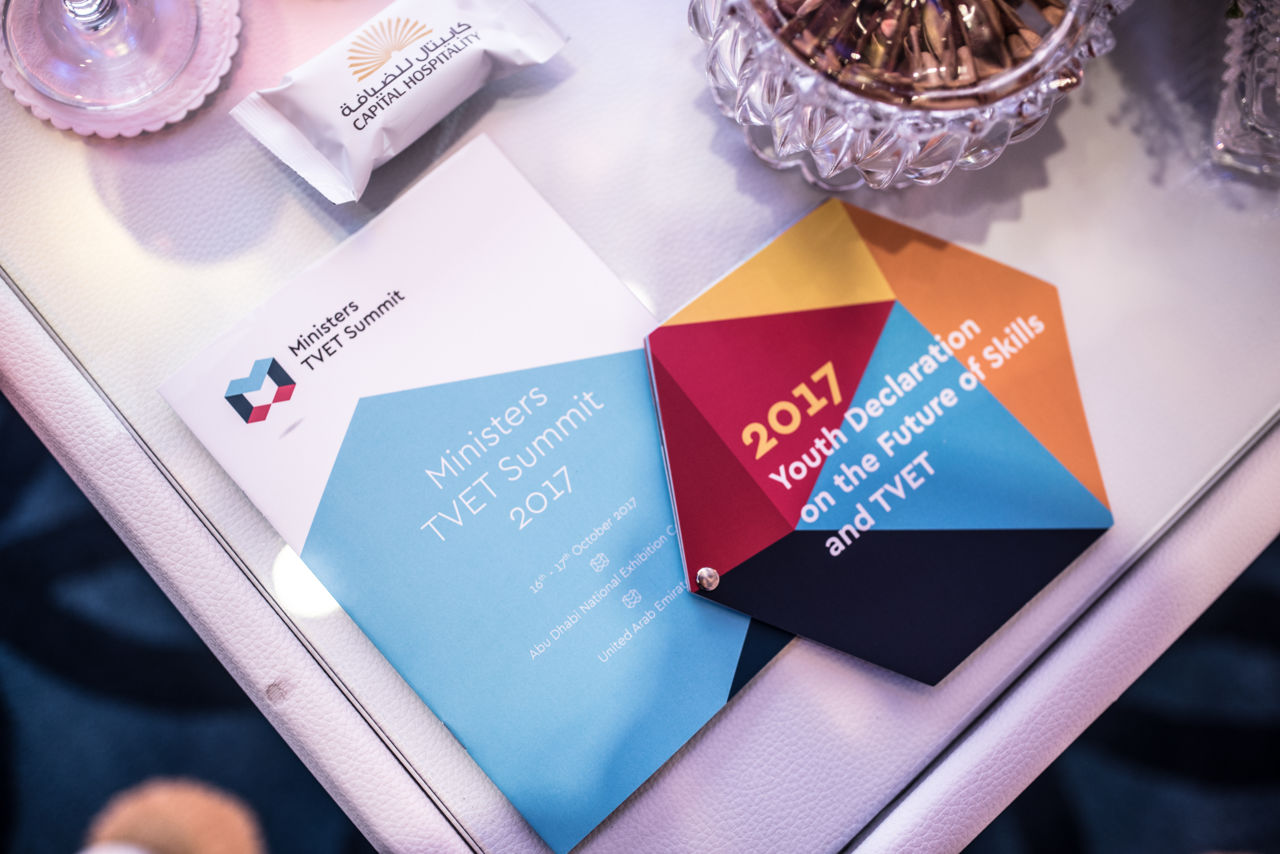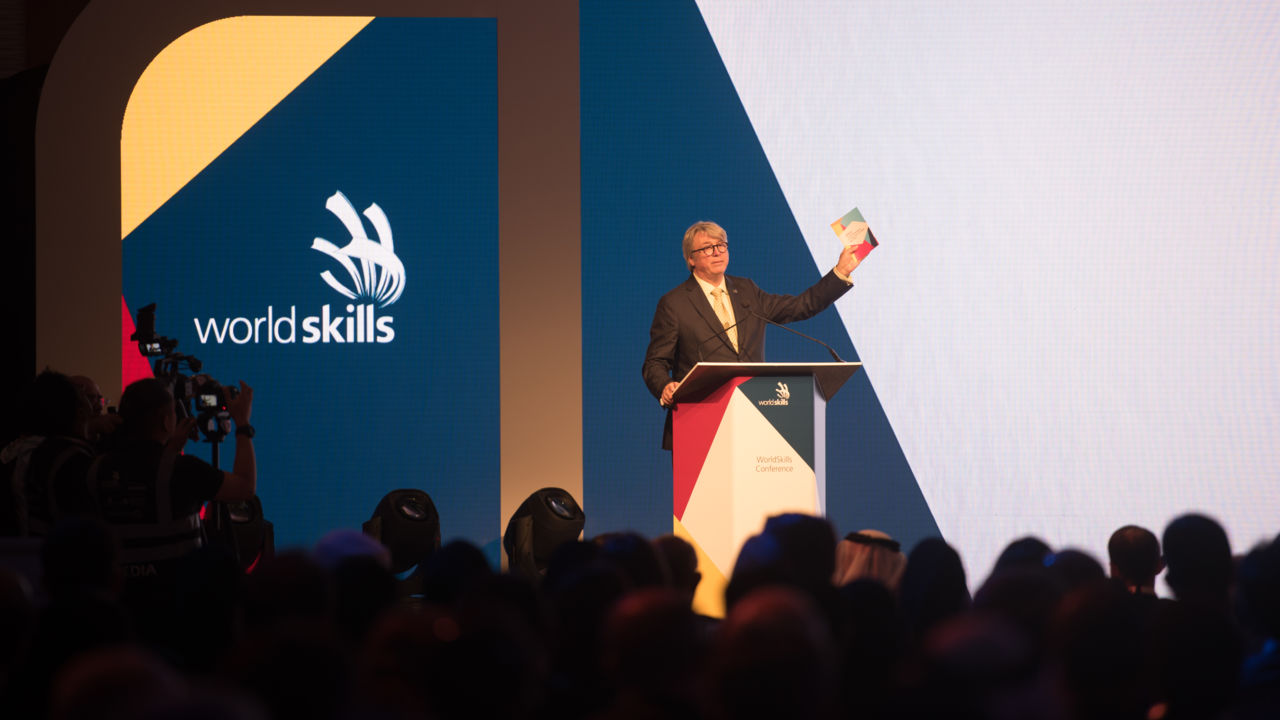16 October 2017
WorldSkills Conference 2017 aims to ensure vocational skills meet the needs of a changing world

A high-level global conference as part of WorldSkills Abu Dhabi 2017 – the world championship of vocational skills – has today got under way, with its focus being on shaping the future of vocational education and training.
Government and industry representatives, experts, thought-leaders, and young people from around the world are participating in the two-day WorldSkills Conference 2017 at Abu Dhabi National Exhibition Centre (ADNEC), which is being held under the theme of ‘Skills Strategies for a Globalized World’. The Conference is hosted in partnership with ACTVET.
The aim of the event is to address the foremost challenges facing the development of vocational skills around the world as the ‘Fourth Industrial Revolution’ ushers in dramatic changes to the way people live, learn, and work, and accelerates the need for technical and vocational education and training (TVET) to nurture the abilities and talents that the industries and economies of the future will need.

During the Conference, 15 panel sessions will analyze and debate pivotal issues surrounding the future skills agenda, with participants including representatives from the world’s leading vocational and skills development organizations, such as UNESCO, the International Labour Organization (ILO), and the European Commission, the Global Apprenticeship Network (GAN), and the British Council.
It takes place as 1,300 young people from more than 60 WorldSkills Member countries and regions demonstrate their technical skills and craftsmanship across 51 Skills categories at WorldSkills Abu Dhabi 2017, which is being held at ADNEC. It is the first time the world’s largest and most prestigious vocational skills competition has been hosted by the Middle East and North Africa region, with the WorldSkills Conference 2017 seeking to maximize its global stature and profile to draw attention to the way skills demands around the world are shifting, and the necessity of responding.
And in its opening plenary session, participants in the first International TVET Youth Forum – which took place on 14-15 October, also alongside WorldSkills Abu Dhabi 2017 – had the opportunity to present to government ministers, representatives of WorldSkills partner organizations, and the conference audience, the skills priorities they have defined through the unique opportunity to collaborate with young professionals from across the world.

The Youth Forum has seen nearly 300 young professionals from 70 different countries and with a hugely diverse range of skills come together to work on a Youth Declaration on the future of skills and TVET, to be presented to global decision-makers as a foundation for further discussion and action. Working in think-tanks dedicated to exploring specific global TVET challenges, they have tackled issues including innovation, entrepreneurship, diversity and inclusion, global citizenship, the green economy, and Industry 4.0, collaborating online in the months leading up to the Forum before finally meeting in person in Abu Dhabi this week.
The opening plenary also discussed potential policy-level solutions for building a TVET agenda that is ready to meet the needs of the future, with further conference activities today seeing the British Council – the UK’s international organization for cultural relations and educational opportunities – lead panel sessions examining which skills modern employers really need, and how the sustainable skills that enable cities to continue to be drivers of economic growth can be cultivated.
WorldSkills Kazan 2019 – the next WorldSkills Competition host – led a panel discussion on ‘Skills for a New and Transforming Economy’, involving leaders of industry, international organizations, and education, while the ILO, a WorldSkills International Coalition Partner, organized a discussion on the factors behind the mismatch between jobs and skills, and the impact of this skills gap.
Meanwhile, the first day of the Conference also saw GAN address innovative approaches to tackling youth unemployment, through sharing global success stories and posing the question of how skills stakeholders can help young people to develop the abilities that open the door to fulfilling jobs.
And the European Commission, together with Cedefop – the European Centre for the Development of Vocational Training – hosted a session on “skills anticipation and development” against a global context, and ways in which TVET can respond to rapidly-changing demands, as well as how an increasingly globalized labor market influences which skills are most required.

Delivering his opening speech at the conference today, Simon Bartley, President of WorldSkills International, explained how the impact of automation and Artificial Intelligence has the potential to transform global economies, and the employment landscape, and how vocational education and training must react accordingly. He also outlined the importance of creating skills development systems that reflect the ways in which young people want to learn, and of addressing the widening global skills gap.
“Last year, global youth unemployment rates rose for the first time in three years, with the International Labour Organization (ILO) estimating that the rate was 13.1%. That is 71 million young people out of work. In some of the regions where WorldSkills is most active, such as Asia, including the Middle East and North Africa, the proportion of people is much higher.”
More than 10,000 international visitors and 100,000 UAE visitors are expected to attend WorldSkills Abu Dhabi 2017, with the 44th edition of the Competition expected to be the largest ever.
Speaking about the platform this provides for the WorldSkills Conference 2017 to reach a global audience, Laurence Gates, Vice-Chair of the WorldSkills Strategy Committee, said: “The international scope, reach, and reputation of the Competition makes WorldSkills Abu Dhabi 2017 an ideal opportunity to bring together skills development stakeholders from around the world to discuss and debate challenges and solutions, exchange knowledge and ideas, and help to define strategies for ensuring TVET remains at the heart of global economic strategies.
“Through this conference we aim to generate new knowledge, insights, and ideas, and shape the strategic focus that will help to ensure countries around the world are best-placed to provide opportunities for talented young people to succeed, allow employers to gain access to the highly-skilled human capital they require, and align their approach to Technical and Vocational Education and Training with the global forces that influence economic and social development.”